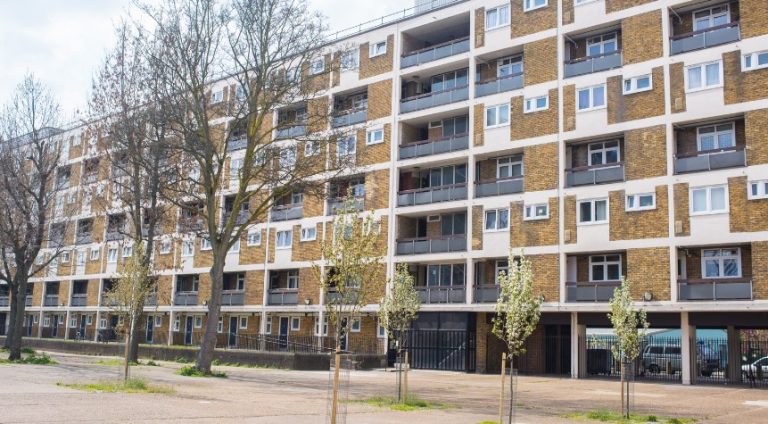Living in close proximity to others can be challenging, especially when a neighbour’s behaviour begins to negatively impact your peace and comfort.
Knowing how to escalate the issue to the appropriate authorities can be crucial, whether it’s loud noise, unruly behaviour, or other disruptive actions.
This comprehensive guide will explain how to complain about a neighbour to the council in the UK, ensuring that you follow the right procedures and increase your chances of resolving the dispute effectively.
Understanding Neighbour Disputes and When to Report

What Constitutes a Nuisance Neighbour?
A nuisance neighbour is more than just someone who occasionally annoys you; they are individuals whose behaviour repeatedly interferes with your quality of life.
This behaviour could be intentional or unintentional, but in either case, it becomes a problem when it disrupts the peaceful enjoyment of your home. Some examples of nuisance behaviour include:
- Noise disturbances such as loud music, shouting, or constant barking from pets.
- Antisocial behaviour, including aggressive actions, vandalism, or harassment.
- Property damage or neglect, where a neighbour’s lack of upkeep causes issues, such as overgrown gardens or broken fences.
- Rubbish problems, like excessive waste left out on the street or inappropriately disposing of waste.
Before reporting a neighbour to the council, it’s essential to assess whether their behaviour qualifies as a legitimate complaint.
While we all have different tolerance levels for noise and disruption, the council will only act on matters that clearly breach legal or environmental regulations.
These reasons not only disrupt your comfort and safety but also can have long-term impacts on your health and property. Complaining through the proper channels can help resolve these issues and restore a peaceful living environment.
When Should You Involve the Council in Neighbour Disputes?
In many cases, it is best to try resolving disputes informally before involving the authorities. Open communication between neighbours can often resolve minor disagreements without the need for formal intervention.
However, there are situations when the council’s involvement becomes necessary:
- Failed informal attempts: If you have already spoken to your neighbour or sent a polite letter explaining the issue, and their behaviour persists, it may be time to escalate the matter.
- The issue impacts others: If multiple neighbours are also affected by the behaviour, it strengthens your case when reporting it to the council.
- Serious or dangerous behaviour: If the nuisance is severe, such as threats of violence, illegal activities, or something that poses a risk to public health or safety, contacting the council (or in some cases, the police) should be your next step.
Steps to File a Complaint with the Council

How to Gather Evidence Before Making a Complaint?
Before approaching the council, it’s essential to gather as much evidence as possible. Evidence will be crucial in proving your case, as complaints with little or no supporting information are less likely to be investigated seriously. Here’s how to build a strong case:
- Keep a diary or log of incidents: Document the times, dates, and nature of the disturbances. Be specific – note how long the noise lasted or how the behaviour affected you or other neighbours.
- Photographs or videos: If the issue is visual (such as rubbish or vandalism), take photos or videos to provide clear evidence of the problem.
- Witnesses: If others in your neighbourhood are also affected, encourage them to make notes or submit their own complaints. A collective voice carries more weight.
- Correspondence: If you’ve already communicated with your neighbour in an attempt to resolve the issue, keep a record of this as well. It shows that you’ve made an effort to resolve things amicably.
This evidence will make it easier for the council to assess the validity of your complaint and decide on appropriate actions.
Reporting Noise Complaints to the Council
Noise complaints are some of the most common grievances in urban and suburban environments. The council has specific procedures for dealing with noise complaints, often handled by the Environmental Health Department. Here’s how you should proceed:
- Gather evidence: Start by keeping a log of when the noise occurs, how long it lasts, and how it affects you. If possible, take recordings to support your case.
- Submit a complaint: Contact your local council via their website, phone, or by visiting in person. Most councils have an online form specifically for noise complaints.
- Council investigation: After you file your complaint, the council will likely ask for your noise log. In some cases, they may visit your home to monitor the noise levels, particularly if the problem occurs regularly.
- Action taken: If the noise is deemed excessive, the council may issue a noise abatement notice to your neighbour. Failure to comply with this notice could result in fines or legal action.
Noise disturbances can range from loud music and parties to ongoing construction work or industrial noise. The council will only act if the noise violates legal limits or local regulations.
Reporting Antisocial Behaviour and Other Nuisances
Antisocial behaviour includes a wide range of activities that negatively affect the community. Examples include vandalism, intimidation, harassment, and public disturbances. Reporting this type of behaviour to the council typically involves:
- Contacting the council or local police: Depending on the severity of the issue, you may need to contact the police as well as the council. Both authorities often work together in handling antisocial behaviour complaints.
- Providing evidence: As with noise complaints, documentation is essential. The council may ask for photos, video evidence, and witness statements to support your claim.
- Further actions: If the behaviour is proven to be antisocial, the council or police can issue community protection notices (CPNs) or criminal behaviour orders (CBOs), which may impose restrictions or penalties on the neighbour.
What Are the Council’s Role in Handling Neighbour Complaints?

The Process After Filing a Neighbour Complaint
Once you have lodged your complaint with the council, they will begin their investigation. The typical process looks like this:
- Initial review: The council will assess the complaint and review any evidence you’ve provided. They will decide whether the issue falls under their jurisdiction and requires further action.
- Contacting the neighbour: If necessary, the council may reach out to the neighbour and inform them of the complaint. In some cases, they might attempt to resolve the matter informally by advising the neighbour to modify their behaviour.
- Further investigations: If the problem persists, the council may conduct a more thorough investigation. For noise complaints, this might involve monitoring equipment; for antisocial behaviour, the council might observe the situation in person or rely on CCTV footage.
- Issuing warnings or notices: If the council determines that your complaint is valid, they may issue a formal warning or a legal notice, such as a noise abatement notice. The neighbour will be required to comply with the terms of the notice to avoid fines or further legal action.
Environmental Health Investigations for Noise and Disturbances
Noise complaints, especially those that fall under environmental health concerns, are taken seriously by the council. Investigations can involve:
- Monitoring equipment: The council may set up devices in your home to measure the noise levels over a set period. This helps them determine whether the noise exceeds legal limits.
- Follow-up visits: Officers may make multiple visits to observe the situation firsthand and verify your complaints.
- Legal notices: If the noise is found to be a statutory nuisance, the council can issue a noise abatement notice. This is a formal legal order instructing the neighbour to reduce the noise or face penalties.
Legal Actions the Council Can Take Against Nuisance Neighbours
If informal warnings and notices fail to resolve the problem, the council can take more serious legal action. This might include:
- Issuing fines: If your neighbour ignores a noise abatement notice or continues their antisocial behaviour, they could face fines or other penalties.
- Prosecution: In extreme cases, where neighbours repeatedly violate council orders, the council may take them to court. If convicted, they could face larger fines or even a criminal record.
- Eviction: While the council cannot directly evict a private tenant, repeated complaints and legal actions may prompt the neighbour’s landlord to take steps toward eviction.
What Are the Common Neighbourhood Issues That Can Be Reported to the Council?

Here’s a list of the Top 10 Reasons to Complain About a Neighbour. These are some of the most common and serious issues that may warrant filing a complaint with your local council or seeking other intervention.
1. Excessive Noise
One of the most common complaints about neighbours is excessive noise. This can include loud music, shouting, or parties that continue late into the night. Regular, prolonged noise can seriously disrupt your sleep and mental health, particularly if it occurs during unsociable hours.
Noise regulations exist in most areas, and the council can take action if the disturbances violate these regulations. You should gather evidence, such as recordings or a log of incidents, to support your complaint before filing it.
Examples of excessive noise:
- Loud music played after 11 p.m.
- Repeatedly hosting late-night parties.
- Constant shouting or arguing that can be heard through walls.
2. Antisocial Behaviour
Antisocial behaviour refers to actions that cause harm or distress to others. This can include vandalism, aggressive or threatening behaviour, public intoxication, and property damage. Such behaviour not only disrupts your peace but can also create an unsafe living environment.
It’s important to report antisocial behaviour promptly, as the council may work alongside local police to investigate and address the issue. Often, formal warnings or legal actions like criminal behaviour orders (CBOs) are issued to manage persistent offenders.
Examples of antisocial behaviour:
- Vandalising shared spaces like gardens or parking areas.
- Threatening or intimidating language or gestures.
- Public disturbances caused by drunken or erratic behaviour.
3. Environmental Health Concerns
Poor waste management and unsanitary conditions created by neighbours can have a significant impact on the health and well-being of your community. Issues like improper waste disposal, fly-tipping, or leaving rubbish piles out for long periods can attract vermin and pests, such as rats and insects, which can lead to wider environmental health concerns.
When these issues occur, the local council’s environmental health team can step in to investigate and take the necessary action to ensure that health standards are upheld.
Common environmental health concerns:
- Accumulation of rubbish, leading to pest infestations.
- Improper disposal of hazardous waste.
- Overflowing bins attracting flies or vermin.
4. Illegal Construction or Alterations
Building or making alterations to a property without the proper permissions can cause significant disruptions to neighbours, especially if the work breaches local planning laws or encroaches on your property.
Whether it’s an unauthorised extension, the erection of large fences, or changes that block natural light, illegal construction can impact your privacy and property value. If you suspect that your neighbour is building without the required permissions, you can report this to the council, which will send inspectors to investigate.
Examples of illegal alterations:
- Building an extension without planning permission.
- Erecting a fence that exceeds height regulations.
- Adding a conservatory that invades a shared boundary.
5. Harassment or Intimidation
Harassment or intimidation from a neighbour is a serious issue and can include verbal abuse, threats, or even physical actions that make you feel unsafe in your home. This behaviour creates a hostile environment and can lead to anxiety, stress, and fear.
If you feel that a neighbour’s actions constitute harassment, it’s important to document every instance and report it to both the council and the police. Depending on the severity, the authorities may issue formal warnings and protection orders or take legal action against the perpetrator.
Examples of harassment or intimidation:
- Receiving threatening letters or messages.
- Verbal abuse or derogatory comments made in public.
- Stalking or persistently monitoring your movements.
6. Boundary Disputes
Boundary disputes can arise when a neighbour encroaches on your property, for example, by extending a garden or erecting a fence that crosses into your land. These disputes often involve disagreements over property lines, shared fences, or walls, and they can escalate if not addressed early.
While boundary issues are typically a civil matter and may require legal action, you can still notify the council if the neighbour’s actions breach planning or environmental regulations.
Common boundary issues include:
- Disagreements over where the property line falls.
- A neighbour building on or over your land.
- Conflicts over responsibility for maintaining shared fences or walls.
7. Noise from Pets
While neighbours are allowed to own pets, constant noise from animals, especially incessant barking, can become a major disturbance. If a dog barks frequently throughout the day or night, it can seriously impact your ability to enjoy your home peacefully. The local council can intervene if a pet is causing an unreasonable disturbance, particularly in cases of noise pollution.
Animal noise complaints typically require detailed logs and may lead to the pet owner being asked to take measures to quiet the animal.
Examples of pet-related noise complaints:
- A dog barking continuously for hours on end.
- Noisy pets being left alone in the garden overnight.
- Animal fights or loud disturbances from multiple pets.
8. Rubbish and Littering
Improper waste disposal, such as leaving rubbish bins overflowing or littering shared spaces, can cause several issues, including unpleasant odours, increased pest activity, and unsightly conditions.
Neighbours who fail to dispose of their waste properly not only diminish the appearance of the area but can also create environmental hazards. When this occurs, filing a complaint with the council can lead to fines or formal notices requiring the neighbour to rectify the issue.
Common issues with rubbish:
- Piles of waste left in gardens or on pavements.
- Overfilled bins left on the street for extended periods.
- Neighbours dumping large items or littering in shared spaces.
9. Nuisance Odours
Persistent or strong odours from a neighbour’s property can make it difficult to enjoy your home. These smells could come from various sources, including cooking, waste, animals, or poor ventilation.
Nuisance odours can create an uncomfortable living environment and may sometimes indicate larger problems like unsanitary conditions or illegal activities. Environmental health officers from the council can investigate complaints related to nuisance odours and take necessary action to eliminate the source.
Examples of nuisance odours:
- Strong, persistent smells from pets or waste.
- Odours from cooking that seep into neighbouring homes.
- Industrial smells from home-based businesses or workshops.
10. Parking and Traffic Obstructions
Parking disputes are common in neighbourhoods, particularly in areas with limited spaces. Neighbours who consistently park their vehicles inappropriately—such as blocking driveways, using designated spots, or obstructing access roads—can create frustration and inconvenience.
In some cases, parking disputes can even become dangerous, particularly if emergency vehicles cannot access the road. The council can issue penalties for traffic and parking violations, and in severe cases, they may tow offending vehicles.
Examples of parking and traffic issues:
- Neighbours blocking your driveway or garage.
- Using your parking space without permission.
- Leaving vehicles in no-parking zones or blocking emergency access routes.
Alternative Ways to Resolve Neighbour Disputes
Mediation and Dispute Resolution Services
Mediation can be an effective solution if you prefer to resolve the dispute without escalating it to the council. Mediation involves both parties sitting down with a neutral third party to discuss the issue and find a resolution. Benefits of mediation include:
- Voluntary participation: Both parties must agree to mediation, and the mediator facilitates the discussion to ensure both sides are heard.
- Non-confrontational: Mediation is less adversarial than involving the council, and it can often result in more cooperative relationships moving forward.
- Cost-effective: In many cases, mediation is free or inexpensive compared to legal proceedings.
If both you and your neighbour are willing, mediation can help prevent further escalation.
Housing Associations and Neighbourhood Management Teams
If you live in a property managed by a housing association or a neighbourhood management team, your first step should be to contact them. Housing associations often have internal procedures for handling complaints between tenants, which may include mediation, investigations, or disciplinary measures.
They may also have more authority to take immediate action, such as issuing warnings or evicting tenants who repeatedly violate tenancy agreements.
What to Do If the Council Doesn’t Act?
Taking Legal Action for Neighbourhood Disputes
If the council does not take satisfactory action on your complaint, you may need to consider taking legal steps. You could:
- Seek an injunction: An injunction is a court order that requires your neighbour to stop certain behaviours. If they breach the order, they could face legal consequences.
- Claim for damages: If you have suffered financial losses due to your neighbour’s behaviour (e.g., property damage or decreased property value), you may be able to seek compensation through the courts.
Legal action should be considered a last resort, as it can be costly and time-consuming. Always seek legal advice before pursuing this option.
Filing a Complaint with the Local Government Ombudsman
If you believe the council has mishandled your case or has failed to take appropriate action, you can file a complaint with the Local Government Ombudsman (LGO). The LGO investigates complaints about local councils, and they may recommend solutions or compensation if they find the council acted improperly.
Conclusion
Dealing with a difficult neighbour can be frustrating and emotionally taxing, but understanding your rights and the proper steps to take can make the process more manageable.
Whether it’s excessive noise, antisocial behaviour, or other nuisances, the local council can help investigate and, if necessary, take legal action.
Before making a formal complaint, it’s crucial to gather strong evidence and explore alternative resolution options, such as mediation. If the council’s actions don’t resolve the issue, you have further legal options to consider.
By following the correct procedures, you can work towards restoring peace and improving your living environment.
What Are the FAQs About Complain About a Neighbour to the Council?
How long does it take for the council to act on a neighbour complaint?
The council typically responds to complaints within a few weeks, though this may vary depending on the nature of the issue and the level of evidence provided.
Can I remain anonymous when making a complaint?
Yes, you can request to remain anonymous, but this may limit the council’s ability to fully investigate your claim.
What happens if my neighbour retaliates after I file a complaint?
If retaliation occurs, report this immediately to the council and the police. Retaliation is a serious offence and can result in legal consequences for your neighbour.
Can the council remove my neighbour for repeated disturbances?
While the council cannot directly evict a private tenant, they can take legal actions that may lead to the landlord or housing association taking further steps, including eviction.
What type of evidence is needed to support my complaint?
Evidence can include incident logs, photos, video/audio recordings, and witness statements. The more detailed and consistent your evidence is, the stronger your case.
What are my options if the noise complaint is about a business?
If the noise comes from a business, the process is similar to residential noise complaints. The council may serve a noise abatement notice to the business owner or limit their operating hours if the noise is excessive.
Does the council deal with disputes over property boundaries?
No, disputes over property boundaries are typically a civil matter that should be resolved through legal channels rather than by the council.






